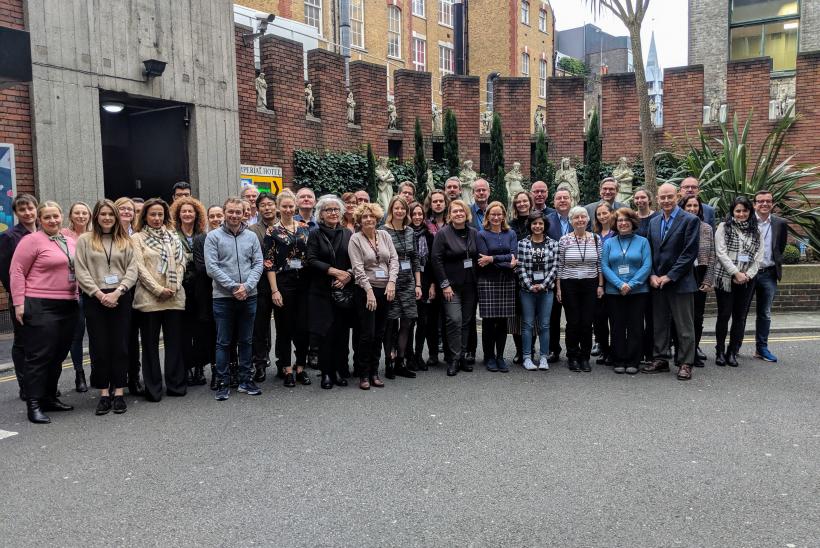GOSH doctor leads study on muscular dystrophy's effect on brain
A Great Ormond Street Hospital (GOSH) neurologist is leading a group of doctors, advocacy groups and researchers from Europe and Japan who have been awarded a grant of more than £5.5 million to research the link between the brain and muscular dystrophy.
The BIND project, which is EU funded for four years, aims to better understand the pattern of brain involvement in people with Duchenne muscular dystrophy (DMD) and Becker muscular dystrophy (BMD). This will include studying the extent to which patients are affected by intellectual disability or neurobehavioural complications such as autistic spectrum disorder and attention deficit disorder. The project is being led by Professor Francesco Muntoni, Paediatric Neurologist at GOSH and UCL Great Ormond Street Institute of Child Health.
DMD prevents production of the protein dystrophin, which results in severe and progressive muscle weakness around the body. BMD is a closely related condition that is generally less severe, with some dystrophin being produced. In recent years, all research efforts on DMD and BMD have focused around improving the outcomes relating to muscle weakness, but the behaviour of the brain has not been looked at before.
Professor Francesco Muntoni said: “We were so occupied studying muscles, we almost forgot to focus on dystrophin in the brain. Around half of those affected by muscular dystrophy experience complications within the central nervous system which can result in intellectual disabilities and neurodevelopmental problems.
“With this project, we hope to better understand involvement of the brain, and enhance the quality of life of those affected by Duchenne and Becker.”
Using laboratory models, researchers will run tests to see whether dystrophin production can be activated in brain cells affected by DMD, and whether this would be beneficial. A positive result could help to write a new chapter on the way brain involvement is treated in DMD and BMD, with potential improvement in quality of life for children and families who are already facing severe mobility problems.
The team hope the research will allow for a better understanding of what goes on in the brain of children with muscular dystrophy and to understand the extent to which treatment to restore dystrophin production could improve their health. As part of the research, the team also want to develop an assessment tool to help define the spectrum of brain involvement in a large population of people with DMD and BMD.
The kick-off meeting held in London in January brought together the project’s 50 participants from eight countries in Europe and Japan, and the advocacy group World Duchenne Organisation. The four-year long project will be worked on by a broad range of experts covering clinical research, molecular biology and protein biochemistry.
At GOSH, the project also receives support from the NIHR Great Ormond Street Hospital Biomedical Research Centre (BRC).
For additional information on the project and the partners involved, please visit the World Duchenne Organisation website.


